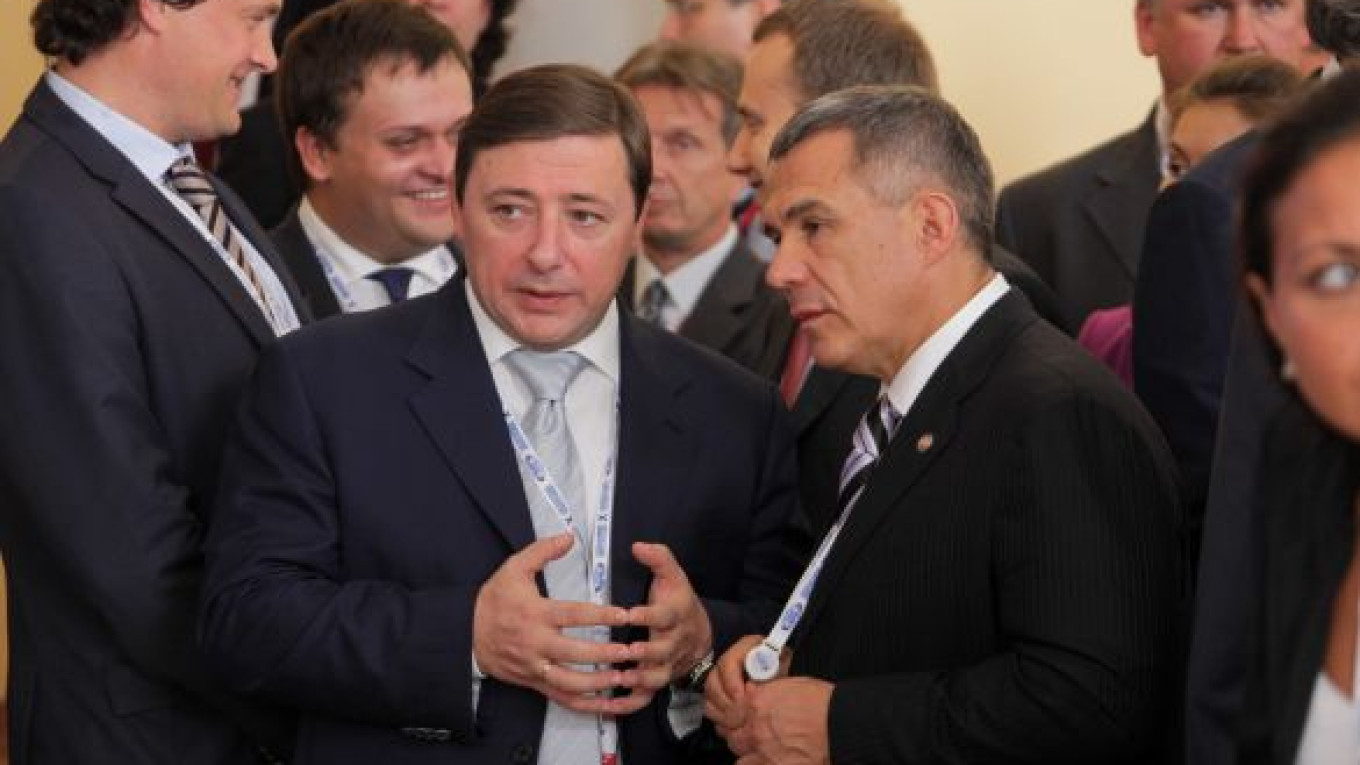Rules requiring government officials to disclose income in official reports don't seem to be instilling confidence to Russians, as a new poll by the Levada Center shows only two percent of people believe officials disclose all sources of income.
The latest official income statements for cabinet members showed Deputy Prime Minister Alexander Khloponin sold some shares to become the highest-earning cabinet member, with an income of 484 million rubles ($16.37 million) last year. Prime Minister Vladimir Putin was near the bottom of the list, with a comparatively meager 3.7 million rubles, and Energy Minister Sergei Shmatko — who oversees the country's most money-making industry, which includes oil and gas producers — rounded out the bottom of the list with 3.3 million rubles.
Declarations of income and assets for public servants were first instituted by a 2010 decree of President Dmitry Medvedev. Most state employees must disclose information on income up to May 14.
But the efforts to increase transparency have had paltry results. At the end of the 2011 declaration campaign, only 1 percent of Levada poll respondents unequivocally believed officials disclosed all income, while the number has risen to two percent in the latest poll, Vedomosti reported. Thirteen percent said officials hide most of their income, while 70 percent believed varying sums were concealed.
The Levada poll also indicated Russians are pessimistic that corrupt practices will change after Putin retakes the presidency May 7, beginning the first of two possible six-year terms. The percent of Russians who thought his battle with corruption would have significant results has dropped from 36 percent in 2000 to 26 percent in the latest poll.
A Message from The Moscow Times:
Dear readers,
We are facing unprecedented challenges. Russia's Prosecutor General's Office has designated The Moscow Times as an "undesirable" organization, criminalizing our work and putting our staff at risk of prosecution. This follows our earlier unjust labeling as a "foreign agent."
These actions are direct attempts to silence independent journalism in Russia. The authorities claim our work "discredits the decisions of the Russian leadership." We see things differently: we strive to provide accurate, unbiased reporting on Russia.
We, the journalists of The Moscow Times, refuse to be silenced. But to continue our work, we need your help.
Your support, no matter how small, makes a world of difference. If you can, please support us monthly starting from just $2. It's quick to set up, and every contribution makes a significant impact.
By supporting The Moscow Times, you're defending open, independent journalism in the face of repression. Thank you for standing with us.
Remind me later.


